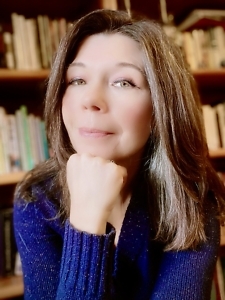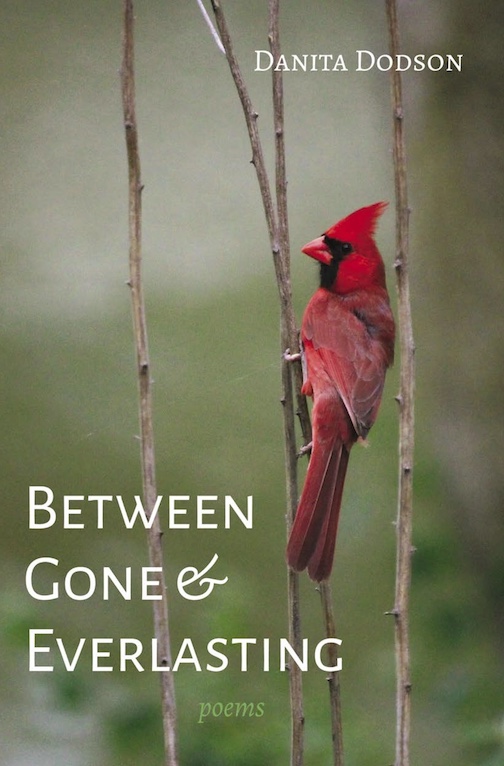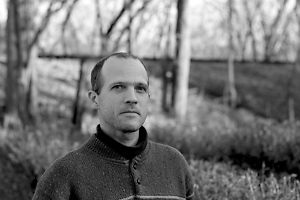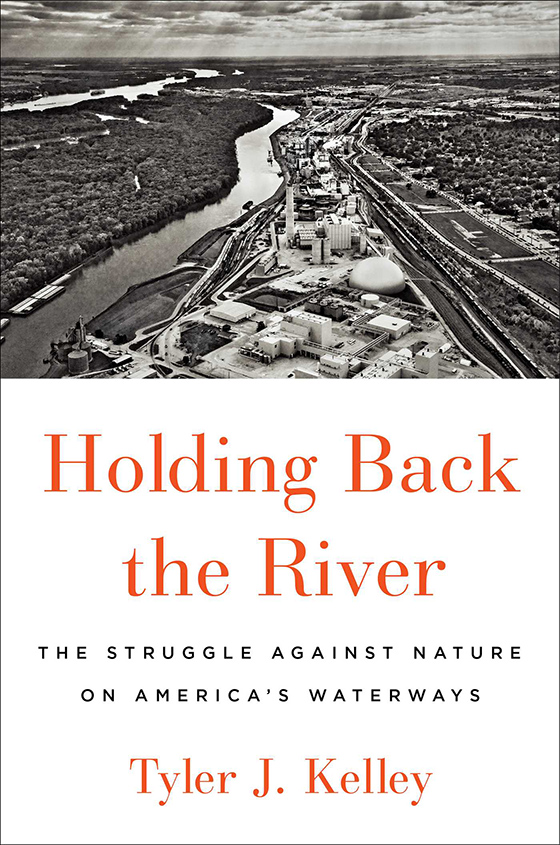Saving Magic
Novelist Megan Giddings explores the intersection of gender and power
Megan Giddings’ 2020 debut novel, Lakewood, explored class and race through a medical horror story. Her second, The Women Could Fly, employs dystopia and fantasy to examine the most pressing issues that curb women’s autonomy, not least of which are racism and state-sanctioned misogyny.
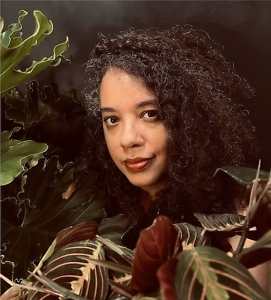
In Giddings’ modern-day U.S., all women must be under the legal guardianship of a man. Witches exist, but they are predominantly Black and Brown women (and occasionally a gay man) and are barely tolerated. They, along with all unmarried women 28 and older, must register with the Bureau of Witchcraft, though even the most innocuous or merely perceived practice of magic can lead to imprisonment or death. In fact, many states still burn witches at the stake in Giddings’ America, where Josephine “Jo” Thomas is fast approaching 28 and trying to navigate her identity and sexuality while facing an increasingly claustrophobic future.
Jo’s past, meanwhile, offers more questions than answers. When she was 14, her Black mother mysteriously disappeared, and neither she nor her white father ever fully recovered from the loss. An unexpected journey to a magical island on Lake Superior to claim an inheritance from her mother brings some closure, but also forces Jo to confront what she’s willing to renounce — and embrace — to gain her freedom.
Megan Giddings’ conversation with Chapter 16 has been edited for length and clarity.
Chapter 16: It’s a challenge to talk about the book because there are so many potential spoilers. It’s also such a dense story, and it feels prescient given the recent SCOTUS decision [on Roe v. Wade]. Goodreads described your first novel, Lakewood, as “part The Handmaid’s Tale, part The Immortal Life of Henrietta Lacks,” and I think Handmaid’s world certainly carries over here.
Megan Giddings: I actually don’t think Handmaid’s Tale really applied to the first book, to be honest. It’s something publishers tack on if you’re ever talking about some form of oppression, and it was just funny to me, because for this [book] I think it does work, but fewer people are using it.
Chapter 16: How long did this story germinate in your mind? Did it take a while to write, or did it come quickly?
Giddings: It didn’t come as quickly as I thought it would. I started the book back in 2018, immediately after writing Lakewood. I was thinking a lot about the American healthcare system and about race and the intersection. So at first it felt like I was trying to write the first book, part two, but I wasn’t saying anything. And I realized the more I wrote, especially when I brought in the witches element, that what I was thinking a lot about was gender and power.
During the Trump presidency, suddenly many of us wanted to talk about the intersection of gender and power, and a lot of people didn’t want to talk about it at all. And I think that frustration led me in some ways toward writing this book because I want to think really deeply about how my own life has been shaped. The world we live in really requires you, if you want to be comfortable, especially if you’re a writer, to have a partner and to be married because of health insurance.
Also, I was raised in the rural Midwest, and a lot of people I went to high school with got married at 22 or 23. It felt like there was a timer for them, and then when we were approaching our 30th birthdays, a lot of them seemed to have no idea where life would take them next if they didn’t have kids. It was another really depressing thing — if you’re taught that your life is marriage and then kids, well, it’s probably very, very frightening to turn 30. You think all of life’s adventures are done, and you’re just kind of figuring things out until your kids are older, then you get to be Grandma. And I really wanted to write about that mixture of being lost, but also feeling a very large pressure to get married or to start your life.
Chapter 16: Looking back, I don’t think I even started my so-called adulthood until I was 30.
Giddings: Sometimes I think of the 20s now as pre-adulthood, where you’re trying to even figure out how to define the word “adult.” And then you spend your 30s trying to grow into that definition, or tweak it.
Chapter 16: What does magic mean to you? What is magic in the everyday world, and why was it so important to incorporate it within “real life” and all its pressures that try to squash magic?
Giddings: I’m going to answer your question in two ways, the first way as a writer. So as a writer, I thought magic was really important, even though there’s so much in this book, because it gave me room to play and be really imaginative, especially when I’m writing about really hard-to-talk-about, or think-about, things. I always need some element that still lets me feel really creative and that I’m having fun. I get to say something really serious, and then I get to be a kid again in the same book.
Magic was also another way to think about power. And there’s the easy analog of you get to point at something and it happens. But I also wanted to find a way to think about how often it seems in America people feel really threatened by the idea of some form of power or accumulation of status that isn’t from money and isn’t from who you know or ancestral wealth. But it comes from education. It comes from the ability to work in community with other people. So it was really important to me to find something that could operate as both fun and still could be thematically important.
Then, as just a person, magic to me is usually the natural world, which I think comes across [in the book], and also kindness. The older I get, one of the few things that feels truly magical to me is when I see someone do something for someone else, big or small, and it’s not about getting something and it’s not about recognition. They just do it out of genuine generosity.
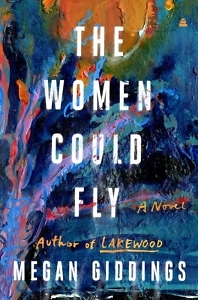 Chapter 16: I really appreciated offsetting these incredibly serious issues — normalized, state-sanctioned violence against women who are told that it’s their “sacred duty to uphold the natural order of things” — with playfulness and magical elements. Even humor. Like when Jo is being grilled by government officials about whether she’s a witch, and they ask her “Have you ever left the state to have an abortion?” and then “Have you ever transformed into a bat?” Maybe this is not a fair question because it’s very open-ended, but what is the most important thing that you would like readers to take away from this book? There’s so much, and hopefully they take all of it woven together, but to you what are the most important elements?
Chapter 16: I really appreciated offsetting these incredibly serious issues — normalized, state-sanctioned violence against women who are told that it’s their “sacred duty to uphold the natural order of things” — with playfulness and magical elements. Even humor. Like when Jo is being grilled by government officials about whether she’s a witch, and they ask her “Have you ever left the state to have an abortion?” and then “Have you ever transformed into a bat?” Maybe this is not a fair question because it’s very open-ended, but what is the most important thing that you would like readers to take away from this book? There’s so much, and hopefully they take all of it woven together, but to you what are the most important elements?
Giddings: Maybe this is too easy an answer, but I want them to leave thinking of Jo as a person. I think one of the hardest things to do when you’re writing about issues, or writing a dystopia, is that the main character can get really swallowed up because everything is so much bigger or louder, and they’re a vehicle for their oppression or the events. But at the same time, the very essence of feminism is you just want to be levelly human. And so to have readers leave thinking deeply about Jo and the choices she made and how the book ends. I really want to talk about how the book ends, but I can’t!
Recent criticisms have made me rethink [The Handmaid’s Tale] in some ways, but the biggest issue I’ve always had with it is that [Atwood] does that jump ahead, like 100 years in the future, and we don’t even know if Offred gets to live or not or actually did anything to help other people.
I think that in some ways, the ending [of The Women Could Fly] is a little bit of a reaction to that because I’ve always struggled with the ending of that novel because it doesn’t implicate the reader. You either get really frustrated that things have jumped ahead, or it makes you feel like we’ll always progress. But there’s never the “Well, how do we do it? How do we save the world?” Such a corny question, but it’s true, though. It’s the question we have to keep asking ourselves all the time now: How do we save each other?
Chapter 16: I don’t think it’s corny because without hope none of us put one foot in front of the other, right? When hope is gone, that’s when people are in their darkest places and sometimes don’t come back from them. What I got from your story was an interesting juxtaposition of a plan to save the world [by a group of witches], yet also a need to separate from the world in order to do good. As if, to be free, you have to renounce so much, which is extremely hard for so many people. Do you believe that we have to do that in order to have freedom?
Giddings: That’s a really good question, no one’s asked me that. I think that to truly believe in progress you have to embrace at least a form of selflessness. Especially if you’re someone who’s grown up where capitalism informs everything — even the level of schooling and education you get is all based on money. Even the way learning is developed, it’s usually about someone always having to be on top, rather than giving people multiple chances to be equal. So especially if you’ve grown up in those systems, you have to let go of the ideas that you have to be better than other people and have more [than them]. You should want everybody to have something.
Chapter 16: You weave many types of violence into the book, including gun violence. I was particularly struck by the line, “Why memorize a spell and sit together for hours to chant when you can point and shoot?” To me, that cut through the heart of the novel. It’s a heartbreaking way of summing up very, very succinctly how violence kills magic.
Giddings: It does, and it kills wonder and it kills all the gentleness that’s the magic of having a vulnerable human relationship.
Chapter 16: Where do you draw hope? It’s at the core of your book, yet so is the persecution of women. Where do you draw hope for the present and the future right now of women’s rights in America, especially for Black and Brown and indigenous women, who have been so much more vulnerable for so long, as it is?
Giddings: [Recently] I had dinner with two booksellers and this wonderful older woman, Sharon, who I think is 85. Most of her life she’s been a lawyer, and she worked for environmental rights. She was heavily involved in the civil rights movement in Detroit. And I asked Sharon, just casually, if she were starting over now, if she was 25, if she would still be a lawyer today. And she said, “Yes, because I’m still angry, I still think the world could be a better place.”
She told me it made her feel so sick to see how the world has shifted again, but then she also said that one of the things that keeps her going is that she’s still angry, she still wants the world to be a better place. And she said it was meeting young people who are angry, who think people deserve to be treated well, and that we’re not giving that up. We want kindness. It’s that dichotomy, where it feels like anger and kindness are opposed, but sometimes you have to get angry because you think people deserve things. If you always stay in a state of neutrality, well, then we’re never going to get better. We’ll never create a place where everyone feels welcome.
Chapter 16: That reminds me of another line from the book, when Jo’s father tells her he doesn’t think people get more conservative over time, but that “they just get tired and it’s easy when you’re tired to be agreeable.” Anger is, I think, important fuel for not becoming too agreeable.
Giddings: Yeah, and I think especially for women, especially Black women. People hate anger. I do too, because we’ve seen a lot of very unhealthy displays of anger and lashing out through the past years that are terrifying and making all of us feel uncomfortable and scared to even be in public. But I also think that if you can harness [anger] toward kindness, or creativity, or think about how sometimes the necessary function of making something good is also being a little pissed off, if we handled anger in a better way, our society might also be a better place.
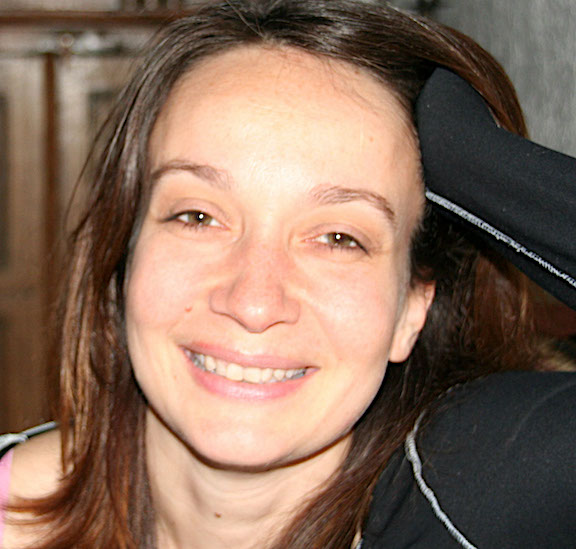
An award-winning journalist, Natasha Senjanovic was born in Yugoslavia, grew up in the US and spent 16 years working in Italy. She is a former Nashville Public Radio host and her work has appeared on NPR, APM Reports, MPR News and other radio and print outlets. An independent producer, reporter and editor, she currently lives in Nashville and is developing the podcast and educational project Women Like Sex.


